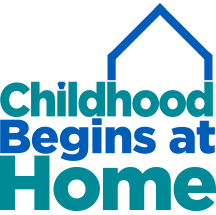Pennsylvania Partnerships for Children is working to ensure that each child can grow up in a stable and healthy home environment. When families are successful, our communities are successful.
Evidence-based home visiting programs help parents and others raising children with the supports necessary to improve maternal and child health—including mental health—improve child development and school readiness, promote family economic self-sufficiency, promote positive parenting practices, reduce abuse and neglect and address substance use disorders.
During home visits, nurses and other trained professionals visit with women, families and children as early as the beginning of pregnancy to promote positive birth outcomes and provide parent education and support.
These voluntary sessions play an important role, especially for those new to parenthood or with limited resources. With far too few Pennsylvania families receiving evidence-based home visiting services, we are working on expanding its reach through increased funding for the programs and through multiple avenues of referrals, including the Department of Human Services Medicaid Maternal Home Visiting Program.
In 2018, in a collaborative effort with stakeholders and home visiting models across the state, Pennsylvania Partnerships for Children founded the Childhood Begins at Home Campaign. The Campaign helps policymakers and the public understand the value of home visiting and support public investments to increase the statewide capacity of evidence-based home visiting models.
Home Visiting Policy Goals
- Increase the number of children and families receiving evidence-based home visiting services.
- Support the home visiting workforce and program sustainability by ensuring adequate staffing corresponds with service expansion and building a qualified and culturally informed workforce to meet families’ needs.
- Expand the Childhood Begins at Home campaign to include new evidence-based home visiting models receiving state funding and explore inviting other supportive partners to elevate community voices.
Home Visiting Publications
Childhood Begins at Home Campaign
Pennsylvania Partnerships for Children is a governing body member and leads the day-to-day management of Childhood Begins at Home, a statewide campaign to help policymakers and the public understand the value of and support public investments in evidence-based home visiting.
To learn more, visit: childhoodbeginsathome.org.
Be a Voice for Kids
Stay up-to-date about our public policy work in this and other areas by signing up to receive our biweekly e-newsletter, “A Voice for Kids.”
Don’t forget to follow us on Twitter and like our Facebook page!


